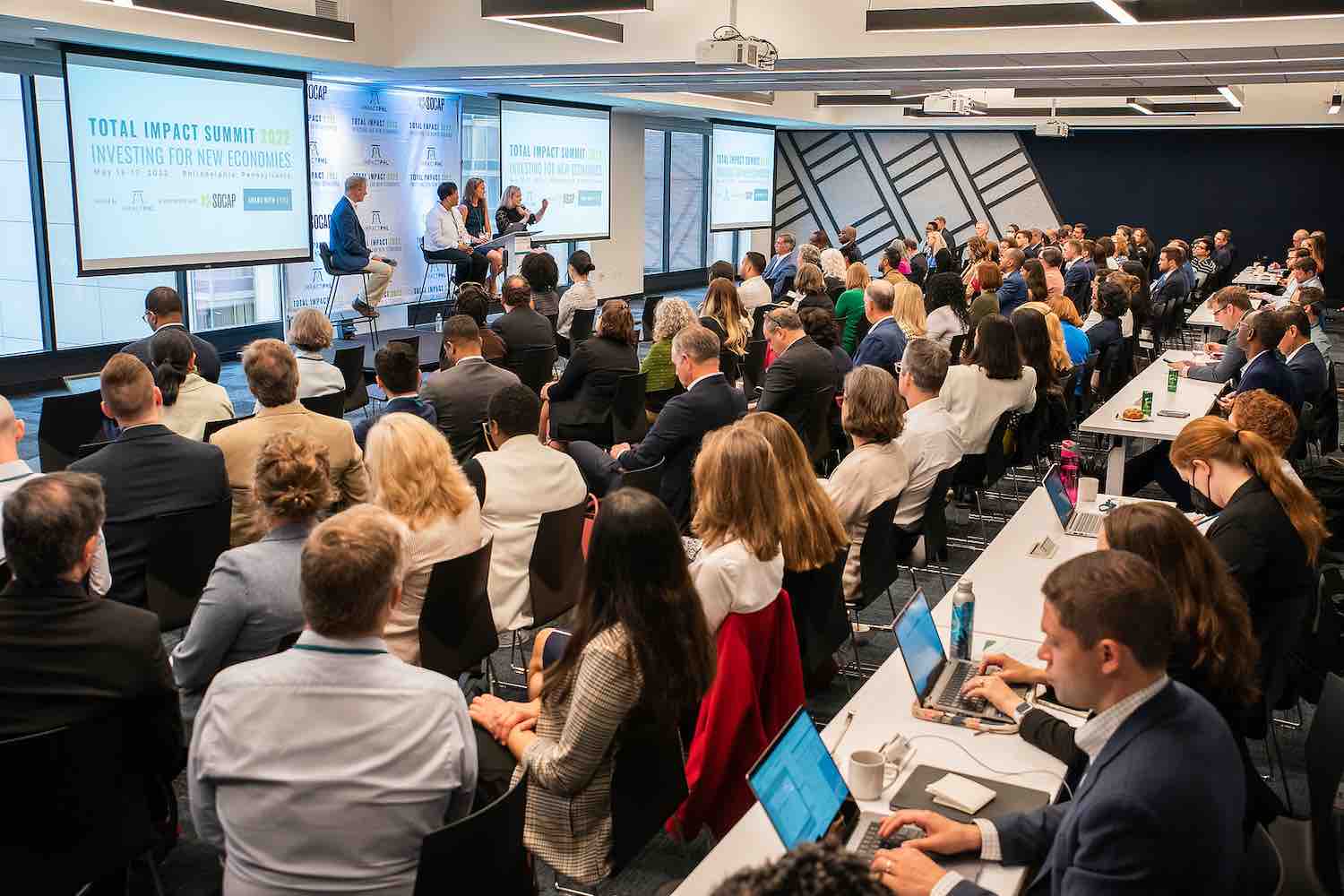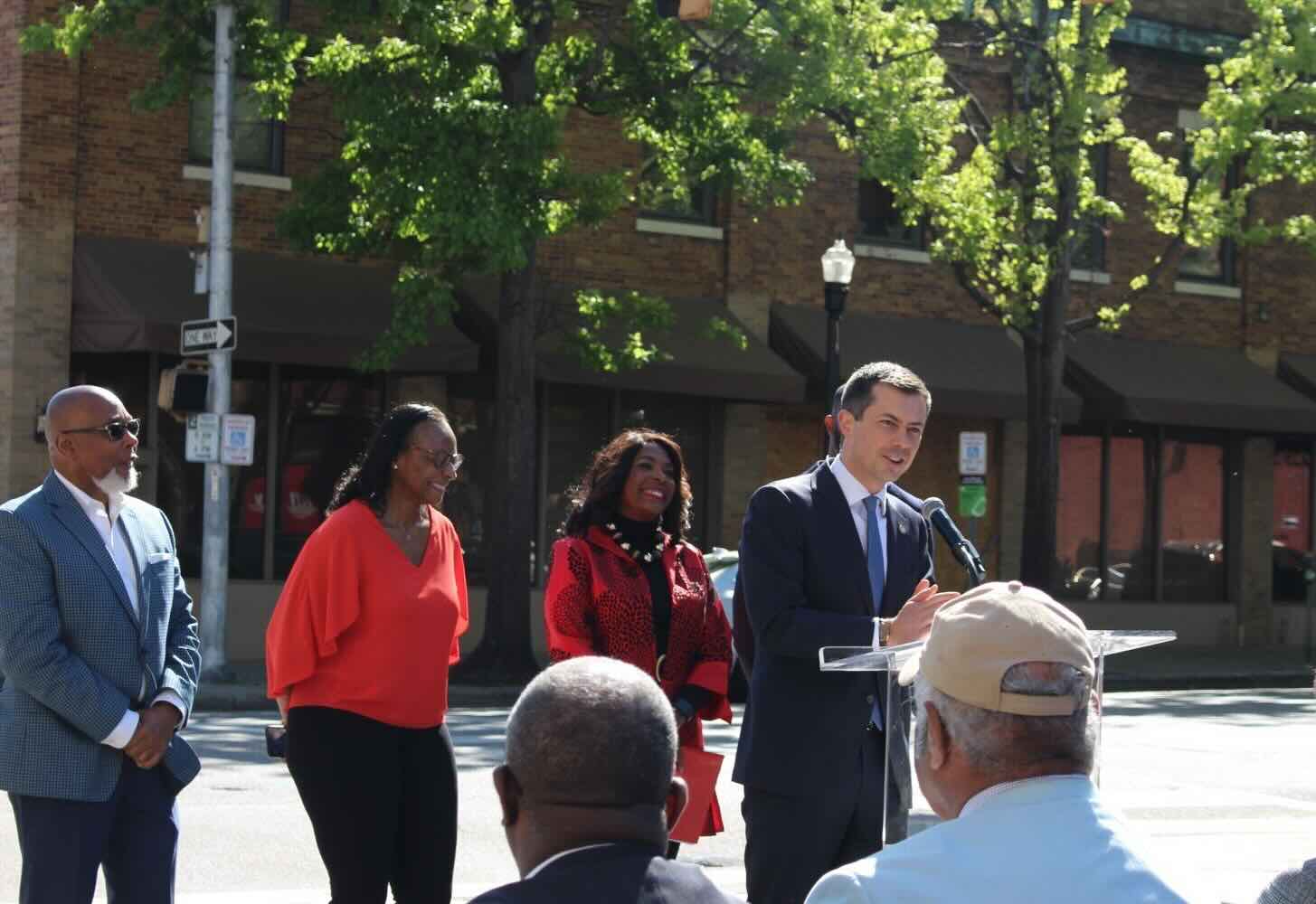ImpactAlpha, May 19 – Agents of Impact convened upon the City of Brotherly Love, even as some unbrotherly events unfolded across the country and the globe.
After a three-year pandemic pause, ImpactPHL’s Total Impact Summit returned to Philadelphia this week.
“On the heels of a global pandemic, and at a moment when a sovereign nation has been invaded by a totalitarian government, we see clearly how our investments shape the world,” ImpactPHL’s John Moore said in kicking off the event.
Closer to home, a racist mass shooting in Buffalo tragically underscored the urgency of racial equity work.
Racial equity “is not a nice-to-have,” said Candide Group’s Morgan Simon. “It’s a matter of life and death for some. Our country is in crisis.”
The equity imperative infused conversations from diversifying financial decision-making to shifting power to communities.
Local businesses, especially in communities of color, were hardest hit by the Covid pandemic, just as they were by the financial crisis of 2008. Each time, governments and investors rushed in with aid. What’s needed: better financial infrastructure to support local businesses and communities so they are better able to thrive in good times and bad.
“We have to move from rescue to resilience,” I said in opening Day 2, which featured a local entrepreneur showcase.
From training to capital
“I do not like the word underserved,” said Della Clark of The Enterprise Center in Philly. “Communities are being served, but with the wrong thing.” Instead of more training programs, she favors capital. And instead of debt, equity.
In April, Clark launched the Innovate Capital Growth Fund to provide capital to women and minority entrepreneurs that are poised to scale in the mid-Atlantic region. She has raised $17 million, toward a target of $50 million, from Bank of America, the Delaware Valley Regional Economic Development Fund, Spring Point Partners and other investors.
“We want to bring an infusion of equity capital of an average size of about $2 million to companies that have the potential for growth and significant scale.”
Crashing the gates
Gatekeepers of capital must begin to think of themselves as facilitators of capital, said Jackie Khor of Social Finance. Khor, who helped convene the Rockefeller Foundation gathering 15 years ago where the term impact investing was coined, argued that it’s time for capital allocators to hand power to a younger generation of leaders who are proximate to the communities they seek to address.
“The solutions are all there,” said Khor, addressing the gatekeepers in the room. “How do you package, curate and facilitate access to capital so that the decisions are made closer to the community?”
One example: the community-led Ujima Fund. “Instead of me pitching a portfolio manager, I’m pitching the community, the entire Ujima membership base, on an investment opportunity,” said Ujima’s Jock Payten.
Great expectations
More than 98% of asset managers are white men. Diverse fund managers trying to break in are judged on track records, assets under management and other metrics they haven’t yet built up. It’s a chicken and egg problem, explained Erika Seth Davies, who helped create the “due diligence 2.0 commitment” that suggests alternative metrics. Illumen Capital is working with mainstream fund managers to diversify their teams and outlooks.
Getting the allocation is just the first hurdle. Not every investment works out, noted Sylvester Mobley of Plain Sight Capital. As we shift who has control of capital to BIPOC managers, there is a lot of pressure on first-time fund managers “to not fail,” he said.
More diverse managers will find more diverse entrepreneurs. “We have so many people that are sitting on the sidelines that can add so much significant economic value that we all benefit from,” said Founders First’s Kim Folsom.
More pie, please
“We will all do better and grow the pie if we have diverse voices in the room,” said Patience Marime-Ball of Women of the World Endowment and co-author of the forthcoming book, “The XX Edge.” The book argues that gender diversity improves performance.
A 2015 McKinsey report estimated that if gender parity were achieved in 95 countries, an additional $28 trillion would be added to the global economy. That’s “more pie,” said Marime-Ball.
Gender is just the entry point. “If we do it for women, we do it for people of color, we do it for Black men,” she says.
For ImpactPHL, which connects investors with opportunities in the greater Philly region, impact starts at home. “Our financial systems make it very easy to invest in Apple and Tesla, and not so easy to invest in our own backyard,” said the group’s Cory Donovan.
“When we can get [investors] to be intentional with their investments, that’s a homerun. When we can get them to apply a local lens, that’s a grand slam.”











